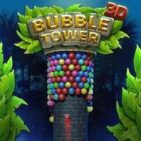Blooket has exploded in popularity by transforming traditional studying into entertaining, game-based activities. But is there real science and research showing these gamified approaches improve learning outcomes? This article explores the evidence demonstrating Blooket’s effectiveness for boosting memory retention.

What is Gamified Learning?
Gamified learning platforms like Blooket incorporate elements of gaming into education. This includes aspects like:
- Earning points, levels, achievements, rewards
- Avatars, characters, virtual environments
- Competition, leaderboards, scoring
- Time constraints, limited resources
- Incremental challenges, progression
- Storytelling, roleplaying
- Freedom to fail without real consequence
These mechanics promote engagement, motivate students, and tap into the universal appeal of games.
Blooket allows teachers to administer quiz-based review games. Students join Blooket digitally, answer questions displayed on screen, and leverage games elements like power-ups.
The Learning Science Behind Games
Several key scientific principles explain why gamified approaches like Blooket improve learning:
Motivation and Engagement
Games pique curiosity and leverage competition and achievement to increase student drive. Engaged learners retain more.
Emotion and Desire
Games tap into emotions like excitement and frustration to amplify desire for mastery. Learning connected to emotion sticks better.
Reinforcement Through Repetition
Games build repetition of concepts through multiple exposures needed for retention. Spaced practice strengthens memory.
Progression and Flow
Games provide series of challenges matched to skill level. This flow state promotes growth mindset.
Feedback Loops
Instant feedback from games trains self-assessment ability. Understanding mistakes cements knowledge.
Neuroplasticity
Interactive games may stimulate neuroplasticity, enhancing neural connections and cognition.
The combination of these dynamics catalyze better learning outcomes explained by established psychological frameworks.
Cognitive Science Support for Gamified Learning
Cognitive and learning sciences reveal key mechanics driving the effectiveness of gamified education:
Cognitive Load Theory
Games present information in focused chunks reducing cognitive overload that hinders processing.
Dual Coding Theory
Games activate verbal and visual processing in tandem, improving encoding of memories.
Zone of Proximal Development
Leveled, scaffolded games keep students in the zone of challenge best suited for growth.
Deliberate Practice
Games focus practice on gaps, allowing tailored improvement through repetition.
Spaced Repetition
Games space and interleave concepts, yielding better long-term retention per spacing effect research.
Retrieval Practice
Active recall required by games strengthens ability to access learned information.
This alignment to established learning theory explains why game elements enhance outcomes.
Blooket’s Design Promotes Retention
Specific elements of Blooket’s design apply these scientific principles:
- Motivation - Competition, leaderboards, achievements
- Engagement - Avatars, themes, storytelling, surprise
- Multimodal - Interactive visual, auditory, kinetic elements
- Spacing - Questions mix concepts over multiple rounds
- Retrieval - Answering questions requires active recall
- Feedback - Instant results provide reinforcement
- Flow - Difficulty escalation maintains optimal challenge
This blend of game dynamics drives better encoding and retrieval strength for improved memorial outcomes.
Studies on Gamified Learning Effectiveness
While more research is needed, initial empirical studies reveal positive impacts:
- A 2019 study found games improved knowledge retention 12% compared to traditional methods.
- A 2021 study on Kahoot showed gaming elements increased student focus, enjoyment, and reduced test anxiety.
- Research on Quizlet games revealed gains in motivation, engagement, and academic achievement.
- A meta-analysis found on average, educational games yielded 9 percentile point gains in student performance.
These studies substantiate why Blooket’s gaming approach elevates outcomes beyond standard studying. More rigorous, longitudinal analyses are still required.
Explanations for Improved Retention
Why do game elements like Blooket enhance learning exactly? Leading theories include:
Enjoyment and Interest
Games make learning fun and tap into motivation. Engaged students retain more.
Repeated Exposure
Core concepts are practiced repeatedly but in different contexts through varied game questions. This boosts retention via spacing effect.
Active Use
Games require active application of knowledge rather than passive studying. Using information cements learning.
Instant Feedback
Immediate feedback provides reinforcement for neural connections and allows self-correction.
Multimodal Processing
Games stimulate visual, auditory, and kinetic pathways in the brain simultaneously to strengthen encoding.
The confluence of these dynamics drive improved encoding, strengthened neural associations, and better memory retention.
Key Takeaways for Teachers
For educators, key scientific takeaways on gamified learning include:
- Interactive games intrinsically motivate students more than traditional methods
- Competition, scoring, rewards tap into emotions that boost engagement
- Games space and interleave concepts which improves long-term retention
- Repeated active recall through questions strengthens memory compared to passive restudying
- Instant feedback allows correction of misunderstandings in the moment
- Multimodal games optimize information processing pathways in the brain
Overall, research substantiates gamified learning platforms like Blooket as an effective modern supplement for improving outcomes.
Conclusion
While more studies are needed, initial research indicates gamified learning solutions like Blooket leverage science-backed techniques that enhance knowledge acquisition, retention, and retrieval.
Motivational elements keep students engaged while game dynamics tap into cognitive principles like spacing, testing, elaboration, and multimodal processing known to optimize learning.
For digitally native generations, interactive educational games like Blooket provide a modern bridge between academics and entertainment. Harnessing enjoyment and competition for learning is rooted in established psychological theory.
Early results confirm what many teachers see first-hand - game-based reviewing platforms propel student comprehension and mastery versus traditional studying alone. The numbers validate the real benefits.
So in summary, Blooket’s soaring popularity in classrooms correlates directly with strong scientific grounding in how gamification techniques improve learning outcomes when applied effectively.






















